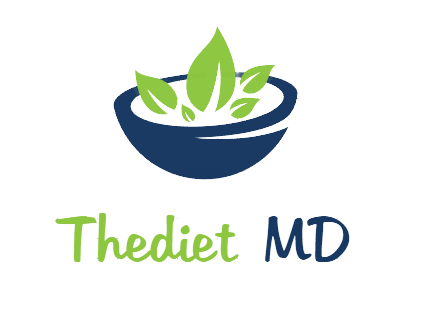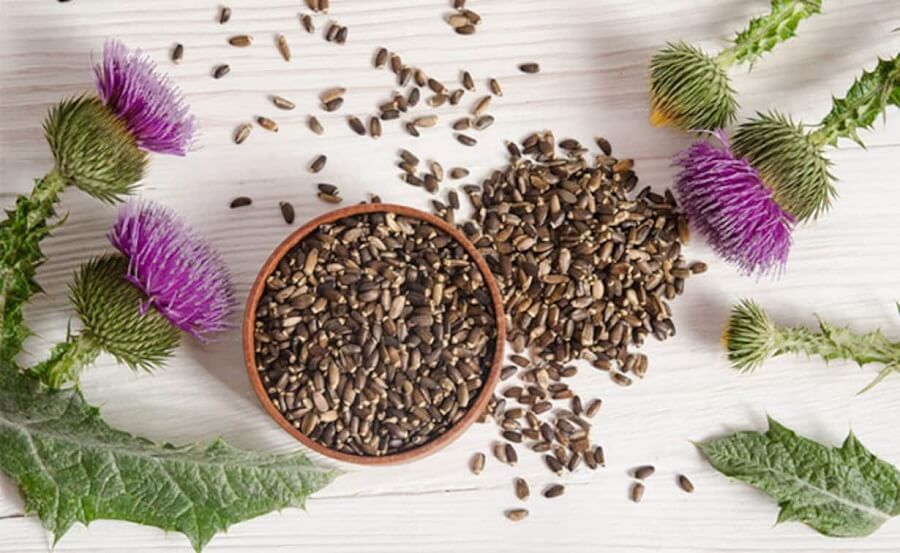Milk thistle ( Silybum marianum ) is an herb known for its positive effects in treating problems that affect the liver, such as hepatitis, cirrhosis and poisoning.
This medicinal plant also controls blood glucose and cholesterol levels in the blood and relieves the discomfort of indigestion.
It is easy to use and has very few contraindications. Curious to find out more? So now below are its main uses and how to use it safely.
Table of Contents
What is the milk thistle for

Treat liver problems
One of the main therapeutic uses of milk thistle is in treating liver problems.
Its composition is rich in sibyl and silymarin, substances with a strong protective effect on liver cells, preventing their oxidation (degradation) and damage that causes serious problems.
Sibylline, in particular, prevents the formation of scars caused by the excessive formation of tissues that impair the organ’s functioning.
This same compound represents almost 70% of the entire composition of the plant; it makes the gland (the part that can produce and secrete substances) better metabolize fat and alcohol, for example.
Due to this potential, the infusion made with the herb can be used as a complementary treatment for diseases such as cirrhosis, alcoholic hepatitis and steatosis ( fat in the liver ).
Another interesting point is that sibyl and silymarin can prevent the replication of viruses that cause hepatitis B and C.
Tea can be a natural way to control viral infection without having the adverse effects of traditional antivirals.
The plant prevents damage caused by drugs harmful to liver cells, such as paracetamol, which increases protection for people who already have weakened livers due to the diseases above.
Control diabetes
Milk thistle helps treat type 2 diabetes mellitus, one of the most common forms of the disease.
It causes an increase in the amount of sugar in the blood and is often caused by a problem called insulin resistance; that is, the body cannot take full advantage of this hormone, which metabolizes glucose.
The herb acts precisely by decreasing this resistance, allowing the body to recognize and use the insulin produced and secreted by the pancreas.
This already promotes blood glucose control. Still, milk thistle goes further and stimulates the use of this nutrient by the cells, favours its elimination by the body and even protects the organs from the damage that the more significant amount of sugar causes in the organs.
The best part is that the extracts of this medicinal plant have few side effects.
It is necessary, however, to emphasize that this does not mean that using tea cures the disease; it is required to adopt the treatment proposed by the doctor and healthier lifestyle habits.
Lowering Cholesterol and Protecting the Heart
Do you know the effect silymarin has on liver metabolism? So he makes the consumption of the herb extract a natural remedy for high cholesterol, which lowers the risk of cardiovascular problems.
The primary substance of milk thistle increases the excretion of LDL cholesterol (Low-Density Lipoprotein), the popular lousy cholesterol while limiting its synthesis by the liver and “shielding” the cells from possible damage caused by this excess.
All this prevents the formation of fatty plaques, which attach to organs and increase the risk of heart problems.
Treatment with the plant lowers LDL and raises HDL (High-Density Lipoprotein) levels, which is good cholesterol for health.
Milk thistle also can protect heart cells against the damage caused by oxidative stress, a process that can cause changes and even lead to cell death.
Relieve Symptoms of Inflammatory Problems
The tea or milk thistle extract relieves inflammation, the body’s defence mechanism.
That is, it eliminates possible health threats, but it has as a side effect all those uncomfortable symptoms, such as burning, pain and accumulation of pus.
The infusion prevents the release of a type of defence cell that the body sends to a place it thinks is being attacked by external forces. Another substance, hydrogen peroxide, is released by the immune system and works to kick-start inflammation.
On the other hand, the phytochemical compounds found in the leaves and seeds of the plant improve the immune response, preventing an exaggerated reaction and protecting the region against the discomfort caused by the inflammatory process.
Thanks to these components, milk thistle can help treat inflammation in various organs, such as the liver, stomach and rheumatic diseases.
End indigestion
Drinking a cup of milk thistle tea can eliminate that bloated feeling after eating something that doesn’t go down well.
It improves liver metabolism, which includes the production and excretion of bile, a type of natural detergent that acts directly on the digestive process.
Decrease the risk of neurodegenerative diseases.
The compounds in milk thistle can potentially mitigate the risks of neurodegenerative diseases and reduce the risk of brain trauma caused by oxidative stress or conditions that impede normal blood flow to the region.
Part of this is due to the herb’s active compounds’ effect on protecting brain cells.
Furthermore, silymarin and sibylin act as antioxidants, preventing cell degeneration in the region, a common problem in the elderly. As a result, there is a lower risk of developing diseases such as Parkinson’s and Alzheimer’s.
Assist in cancer treatment.
Milk thistle is considered a natural chemoprotective and chemopreventive agent. This means that it can help prevent and reverse cancer.
Silymarin is anti-proliferative; it prevents cancer cells from replicating and spreading to other tissues.
This herb acts against the growth of various types of cancer, such as leukemia, liver, colon, gastric, pancreas, skin, prostate, breast, bladder, and cervical.
How to use milk thistle?
Milk thistle can be used as tea, tincture or capsules.
Tea should be prepared by boiling one tablespoon of the herb leaves and seeds in a cup of water for 10 minutes. Then strain and drink the infusion three times a day.
Dilute between 3 and 6 ml in a glass of water and drink it thrice daily if you use the tincture. The dosage is the same as indicated for the capsules.
Care and contraindications
The only contraindication found for the use of milk thistle is for people who have any allergies to plants of the Asteraceae family to which it belongs.
Furthermore, the plant is considered safe to use, even during pregnancy, breastfeeding and by small children, as long as the indicated amount is respected and always used only with medical authorization.
There are no toxic side effects from recurrent use. However, avoid long-term consumption without expert advice.
Where to find it?
Milk thistle can be easily found in natural and herbal products stores, tinctures, infusion or capsules, or in street markets nationwide.
Finding the herb growing naturally in some Brazilian regions is also possible. It has large pale green leaves and flowers, reaching up to 12 centimetres, and is a vibrant purple shade with tiny white lines.
My name is Ellie Lauderdale, MD and I am USA based professional Nutritionist .
I am a Registered Dietitian Nutritionist and board certified specialist in sports dietetics who is trained in integrative medicine. I have worked with hundreds of clients, from those suffering with chronic disease to professional and olympian athletes. My goal is to help optimize you from the inside so that you can feel, perform, and look your best on the outside.


